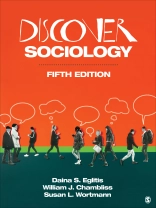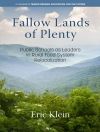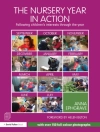What key social forces construct and transform our lives as individuals and as members of society? How does our social world shape us? How do we shape our world?
Discover Sociology answers these questions as it explores sociology as a discipline of curious and scientific minds. The text is structured around several themes, particularly the unequal distribution of power and authority in all aspects of social life. Going beyond theory and concepts, the authors also demonstrate how studying sociology produces more engaged citizens and opens up a diversity of career paths.
This title is accompanied by a complete teaching and learning package.
Table des matières
Chapter 1: Discover Sociology
Chapter 2: Discover Sociological Research
Chapter 3: Culture and Mass Media
Chapter 4: Socialization and Social Interaction
Chapter 5: Groups, Organizations, and Bureaucracies
Chapter 6: Deviance and Social Control
Chapter 7: Social Class and Inequality in the United States
Chapter 8: Global Wealth, Poverty, and Inequality
Chapter 9: Race and Ethnicity
Chapter 10: Gender, Sexuality, and Society
Chapter 11: Families and Society
Chapter 12: Education and Society
Chapter 13: Religion and Society
Chapter 14: The State, War, and Terror
Chapter 15: Work, Consumption, and the Economy
Chapter 16: Health and Medicine
Chapter 17: Population, Urbanization, and the Environment
Chapter 18: Social Movements and Social Change
A propos de l’auteur
Susan L. Wortmann is a professor of sociology and gender studies at Nebraska Wesleyan University. Her scholarly interests include classical sociological theory, gender, religion, and health. She instructs classes in these subjects and introduction to sociology. She is the author of Society: A User’s Guide, a collection of introductory sociology readings. She has published articles on meaning and religious participation, sociological theory, and project evaluation, and has contributed to Blackwell’s Encyclopedia of Sociology and the Encyclopedia of Consumer Culture. Dr. Wortmann also practices applied sociology in her community, using sociological methods, theories, and concepts in collaboration with community partners to address social issues. These include developing a survivor-centered response to campus sexual assault; increasing diabetes and mental health access for Karen, Yezidi, Sudanese, and Vietnamese refugees and immigrants; and creating and evaluating programming for at-risk youth.












